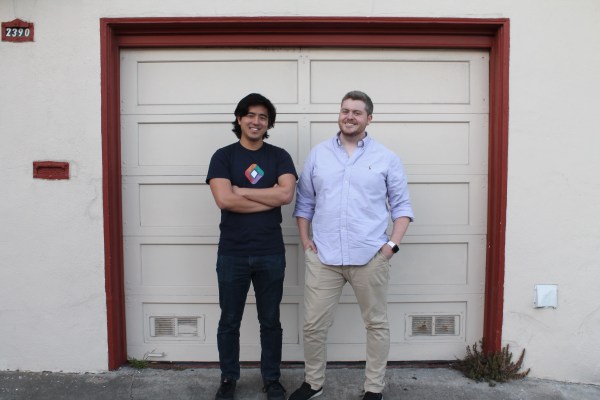Six years ago, Keith Horwood was known in his native Toronto as a former graduate student who’d hacked into his school’s student union election site, changing candidates’ titles for comic effect. (He was given what’s called a conditional discharge after paying a fine and performing community service.)
He also determined that he’d rather become known in tech circles as an agent for good, and he seems to be working toward that end with StdLib, his roughly two-year-old startup that abstracts away infrastructure using “serverless” architecture, allowing developers to write everything from simple functions to complex business logic, then deploy their code as scalable, fully documented web APIs.
The idea: delivering web services and APIs is a complex problem, and plenty can go wrong between the birth of a business idea and the production implementation of a web service. StdLib is aiming to solve the problem by making it possible to deploy new updates that are uncoupled from a company’s infrastructure. (This way, if things go awry with that new function or update, users and customers needn’t know.)
The company has plenty of competition. Still, investors must think it has a chance at fighting through a growing field of upstarts.
StdLib first passed through the accelerator program AngelPad early last year; today, it’s announcing another $2 million in fresh seed funding led by BlueYard Capital, a Berlin- based venture firm focused largely on the democratization of software development.
Other investors in the round include Joe Montana’s Liquid 2 Ventures; Aston Motes, who was Dropbox’s first engineer; Michael Dabrowski, president of the biotechnology company Synthego; and the Nordic Makers Venture Group.
 Horwood says it wasn’t easy breaking into the Silicon Valley scene several years ago, where he first moved to work at Storefront, a company that likens itself to an Airbnb of retail, renting out short-term commercial space.
Horwood says it wasn’t easy breaking into the Silicon Valley scene several years ago, where he first moved to work at Storefront, a company that likens itself to an Airbnb of retail, renting out short-term commercial space.
After moving on to Synethego, an open-source project Horwood had been tinkering with on the side took off, and Polybit, the parent company behind StdLib, was born. But he needed help.
“I was a solo founder; that was extremely difficult because I didn’t have a network,” he says. “I didn’t go to a top-tier Ivy League school.”
San Francisco, with its notoriously high cost of living, was a tough place to live at first, too. “My first year here, I lived in a tiny, tiny room in a house full of five people that had no external windows,” recalls Horwood. “It was essentially a closet. But it was just $700 a month and I saved every penny.”
When it came to attracting outside funding, Horwood thought the “ton of open source stuff” that he had released into the world would help, but it didn’t. “It was hard to get initial proof that we have a vision — it’s this new market that [investors didn’t] understand [early last year] but where we’re at the forefront.”
Horwood adds with a laugh that he’s “happy I underestimated how difficult it would be to build a company from the ground up.”
It’s still early days, of course. StdLib has just one other employee: co-founder, Jacob Lee, a Princeton computer science graduate who Horwood met at a hackathon early last year. (The two also work with two full-time contractors.)
Still, a little funding has understandably put a skip in Horwood’s step. “You have to find the right people, who really believe in you.” He says he wouldn’t be where he is today without the help in particular of AngelPad co-founder Thomas Korte. “He’s very tough on startups, but when he believes in you, he helps you to believe in yourself.”
Asked if he could have built StdLib back home in Toronto, Horwood says he thinks it would be possible, given Toronto’s “vibrant and growing tech scene.”
Having broken through the first barriers to creating a startup, though, he isn’t looking back. “Maybe it sounds corny,” he says, “but I wouldn’t trade the experience of the last three years, of living here, of meeting the people I’ve met, for anything.”
Picture courtesy of StdLib. Featured above, left to right, Lee and Horwood.
